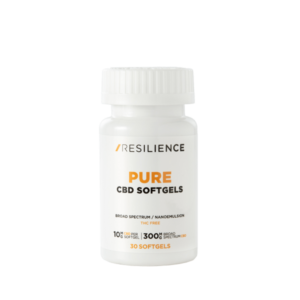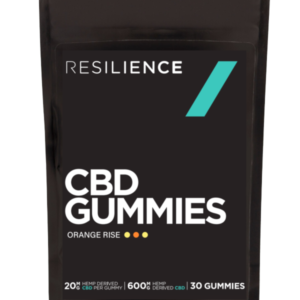
Whether your dog – or you – suffer from anxiety caused by:
- Separation
- Noise
- Travel
- Moving to a new home
- Meeting new people and other dogs, or
- Trauma or PTSD
Don’t despair! A growing body of research suggests that CBD can help.
In people, one of the most common anxiety conditions is Social Anxiety Disorder (SAD). It impacts daily life in terms of how we adjust socially, how productive or how dysfunctional and disabled we are. It does not go away or lessen unless treated.
Two small double-blind studies, one for generalized SAD and one for anxiety caused by public speaking, concluded that CBD had the potential to decrease anxiety.
In the first study by the Departments of Neurosciences and Behavior, Division of Psychiatry, University of São Paulo, Brazil, in 2010, brain scans that tracked blood flow to the brain showed that CBD actually changed the way the brain responded to anxiety. They concluded that “CBD was associated with significantly decreased subjective anxiety.”
In the second study, those who were given a dose of CBD rather than a placebo before a “public appearance” experienced reduced social anxiety. The study concluded that those pretreated with CBD showed reduced anxiety and impairment to thinking and less performance stress.
CBD “significantly decreased alert in their anticipatory speech. The placebo group presented higher anxiety, cognitive impairment, discomfort, and alert levels when compared with the control group.”
THE ECS AS MANAGER
Will your dog be up at the podium speaking soon? Probably not, but your dog may suffer from anxiety. As we know, all back-boned animals have an Endocannabinoid System (ECS) so the phyto-cannabinoid CBD has the same potential to help your dog as it does to help you.
If you don’t already know about the ECS, here is some information about how it works:
- The bodies of back-boned animals produce their own cannabinoids, known as endocannabinoids.
- If the ECS is not functioning properly because the body is not producing enough endocannabinoids, health problems will arise. Some doctors call this clinical endocannabinoid deficiency syndrome.
- Cannabidiol (CBD) occurs naturally in industrial hemp and marijuana, but in much larger quantities in the hemp plant. Both are members of the cannabis family of plants.
- There are at least 85 cannabinoid compounds found in cannabis. The most abundant is CBD; the next abundant cannabinoid that, at this time, has been identified is tetrahydrocannabinol (THC).
- Phyto-cannabinoids like CBD from the cannabis plant can act like endocannabinoids or can prompt the ECS to create more of its own endocannabinoids.
- The ECS has enzymes, cannabinoid receptors, and endocannabinoid ligands to activate receptors. At present, we know about CB1 and CB2 receptors, but there may be other receptors as well.
- CB1 receptors are found mostly in the brain. They are all about movement and coordination, and feelings – both emotional and physical.
- CB2 receptors are found in the immune system’s tissues, in parts of the vascular system, and in microglial cells that moderate immune responses – like white blood cells.
- The ligands that we know most about are 2-AG and anandamide. When they bind with receptors, a signaling pathway inside of a cell begins.
- Ligands and receptors come in matched pairs. Sometimes a receptor’s job is to recognize just one or a few ligands. The ligand and receptor binding together changes the shape and/or activity so that the pair, together, can transmit a signal or produce a change in a cell.
- The ECS in your dog’s body acts in the same way that the ECS acts in your body.
BOOM!
That thundering sound made by the Fourth of July fireworks – or by a thunderstorm – will be a trigger for many dogs. Their systems will release adrenaline and their bodies will be flooded with stress hormones telling them to RUN! or to COWER!
You don’t need to cower with your dogs because there are non-medicinal options for helping your dog deal with stressors; and now, there is a growing body of evidence showing that CBD is one of them.
That dog that was trapped in a burning house? His name is Rocco and he had been living with his owner, Chris, for almost two years. At the age of two, as a result of the fire, Rocco began suffering from PTSD.
How did his owner know? Rocco would bark and lunge, and his hair would stand straight up. His owner, Chris, began giving him CBD daily and there were positive results. Although he has never fully recovered – he is still somewhat nervous around strangers – he has stopped lunging and has made some new friends.
DO WE KNOW IF CBD HAS THE POTENTIAL TO HELP?
In an article in the Huffington Post, Dr. Ibrahim Shokry, a veterinarian for over 30 years and a professor of pharmacology and toxicology at the Ross University School of Veterinary Medicine, said that he believes that CBD “can be used in the treatment of certain types of seizures, to control pain, inflammation, nausea, vomiting, to stimulate appetite and to manage anxiety.”
In the same article, Dr. Adam Christman, a New Jersey veterinarian and a member of the New Jersey Veterinary Medical Association considered an expert on pet wellness points to a 2017 Cornell University study that saw dogs with osteoarthritis given CBD twice daily. Dr. Christman said that the results – increased comfort and activity – “seem to support anecdotal reports of CBD oil’s benefits for pain and anxiety.”
Both doctors eagerly await further studies that would definitively link CBD to helping with a variety of issues. There are many studies that lead us to strongly believe in the power of CBD and there are so many stories like Rocco’s. As more studies come out, there will be more proof of CBD’s efficacy.
One indicator of CBD’s value is Epidiolex, a prescription pharmaceutical that contains CBD and is FDA-approved to medically treat seizures caused by two forms of epilepsy, Lennox-Gastaut syndrome and Dravet syndrome.
If you are wondering what an all-natural CBD product might do for your dog, read on.
IS YOUR DOG ANXIOUS?
Most of the time, your dogs will let you know that they are stressed and anxious. Whether it is separation anxiety, riding in a car, or noise anxiety, there are signs that a dog is stressed. Look for:
- Digestive issues like diarrhea or constipation
- Loss of appetite
- Abnormal panting or excessive shaking and/or licking
- Isolation by hiding or just not being their usual social selves
- Aggressive behavior with people and/or other dogs
- Excessive sleeping
If your dog is exhibiting any of these signs, the first thing to do is consult your veterinarian to make sure that health issues are not causing these symptoms.
If there are no obvious health issues, it may be that your dog’s ECS is out of balance. You may want to consider a plant-based full spectrum CBD supplement (Resilience CBD, of course!) to right a deficient ECS.
IS YOUR DOG HYPERACTIVE?
Let’s take a minute to talk about hyperactivity. We’re not referring to a high energy dog who needs that extra bit of exercise.
We are talking about dogs who really can’t calm down even if you have taken them on that extra walk. They may also have problems learning simple commands. They may be living with a level of anxiety.
Here are some things you may want to think about:
- Whether you are experiencing emotions to which your sensitive dog is reacting. Your calmness will not make a total change, but it will help.
- Give your dog a job or two like the old stereotype of fetching your slippers. Maybe your dog can carry your water when you are out for a walk.
- Swaddle your dog if it is reacting to outside stimulus and would appreciate being held tightly.
- A change of diet may be in order.
- A supplement like CBD would definitely be in order.
CANNABINOIDS, PTSD, AND YOUR DOG
We hope none of these has happened to your dog, but we do know of dogs who have been:
- trapped in a burning house,
- attacked by larger dogs or another type of animal,
- rescued from an abuser.
Each of these scenarios is a trauma that can lead to PTSD, the incapacitating syndrome that is the result of a traumatic experience. Anxiety and sleep disorders that can cause a lack of focus, and oppositional behavior, are some other outcomes.
Our knowledge of PTSD is incomplete, but we do know that:
- Cannabinoid receptors play a role because CB1 and endocannabinoids exist in areas of the brain that are memory related, where memory is regulated. This helps with mood, stress, anxiety, and fear, as well as learning.
- The ECS plays a strong role in eliminating distressing memories. One study showed that when CB1 (receptor)-deficient mice were subjected to noise stress, they were unable, either in the short-term or long-term, to stop stressing.
- Researchers have found that depression is a partner to inflammation. As CBD has great potential as an anti-inflammatory, it has the potential to help with depression by reducing inflammation.
While everyone agrees that more definitive information is needed, there currently is quite a lot of research in progress. The Mayo Clinic looked to a study examining whether CBD can help improve anxiety and sleep. Of the 72 human participants, 57 showed a decrease in anxiety symptoms after taking CBD.
Animal studies show that “CBD may block anxiety-induced [rapid eye movement] sleep alteration via its anxiolytic [ability to reduce anxiety] effect on the brain.”
PETE’S STORY
We, however, need look no further than the anecdotal evidence of the dogs we know and love. When Pete came to live with Angela and Jeff, he was a year old. One of a group of 30 dogs rescued from a hoarder, of which only 5 survived, he arrived with no social skills and a lot of digestive problems.
First, his new family focused on his digestion, offering him special dried food, and while his digestion improved, he remained nervous, showing separation anxiety and a fear of thunderstorms. Enter CBD oil.
Angela began with a low dose. On the third day, she noticed that “he was a lot more alert, more engaged, and kind of had a bounce in his step. He seemed more interactive and able to focus.”
Pete continued with his CBD and continued to improve until, as Angela puts it, he began to act “like a dog…which we really didn’t have before, a normal dog.”
Learn more about Pete and Angela.
DECREASED ANANDAMIDE
Animal studies have shown that anandamide levels in the brain are connected to chronic stress, which Pete surely endured before he was rescued.
Remember, anandamide is a ligand that interacts with the CB1 receptor. While anandamide is busy with CB1 receptors, 2-AG (2-Arachidonolglycerol) works with CB2 receptors to promote heart health, to modulate pain, and a trove of other things.
Anandamide is created on demand to balance the body, but can degrade quickly. CBD probably slows down the degradation by slowing or stopping a particular fatty acid from breaking down this ligand. The longer anandamide is bound to the CB1 receptor, the better the body feels.
For more information on how anandamide works, read our blog.
CBD, PTSD, 5HT1A, LETTERS AND NUMBERS THAT CAN HELP
When a person or dog is exposed to stress from a predator – maybe a dog owner who is an abuser – the serotonin receptor in the brain is thrown off course, provoking anxiety. One study showed CBD’s potential to prevent long-lasting anxiety after predator exposure.
The assumption is that CBD helps the serotonin receptors regain proper neurotransmission. The study suggests “that CBD has beneficial potential for PTSD treatment and that 5HT1A [serotonin] receptors could be a therapeutic target in this disorder.
THE SEROTONIN SYSTEM AND CBD
You may have heard the word serotonin used in connection with depression, anxiety, and PTSD, but do you know that:
- Serotonin and dopamine are essential neurotransmitters (chemical messengers) of the serotonin system.
- Short- or long-term stress, pain, and trauma may occur when this system is dysfunctional.
- Serotonin helps regulate the central nervous system and affects other neurotransmitters and the digestive system.
- As a chemical messenger, serotonin helps regulate aggression, learning, appetite, sleep, consciousness, and reward-seeking behavior.
- Because CBD is promiscuous, meaning that it has more than one target, it can bind at more than one type of receptor: at a certain concentration, CBD binds to serotonin receptors.
- Serotonin receptors, targeted by phyto-cannabinoids like CBD, help with depression and anxiety.
WHY TINCTURES AND OILS ARE THE WAY TO GO
The fastest and most accurate way to take CBD is sublingually – under the tongue. The area under the tongue is full of capillaries that will carry the CBD directly into the bloodstream.
Droppers offer an easy way to measure exactly how much CBD is given as well as a quick delivery method.
Dosing will be different for each person and each dog, even if we calculate by weight, because each person and dog has their own body chemistry. The rate of metabolization may vary, and intensity of need may vary.
We recommend that you read our article on dosing before you begin.
WE ALL EXPERIENCE STRESS
Everybody feels stress whether it is caused by the day-to-day demands of life or by trauma – or anything in between. When family visits, we hate to have to separate and say good-bye; when the faucet drips, drop after drop, it begins to jar the nerves; when an event impacts our lives whether the trauma is a personal loss or a force of nature like fire or a pandemic, we react. It is no different for your dog.
A show of affection can often work wonders; removing the cause of distress also works (i.e., fix that faucet!); and feelings like loneliness can be addressed by companionship. Still, something more may be needed and that something may well be a CBD supplement.
At Resilience CBD, we believe in the efficacy of CBD, believe that it has the potential to help both you and your dog experience the best life possible.
That is why we strive to offer a CBD oil that is organically grown in the U.S.A. from non-GMO cultivars with lab results available on our website; a CBD oil that is consistent in quality; a CBD oil that is made with integrity.
Resilience CBD oil cares about your dog.






